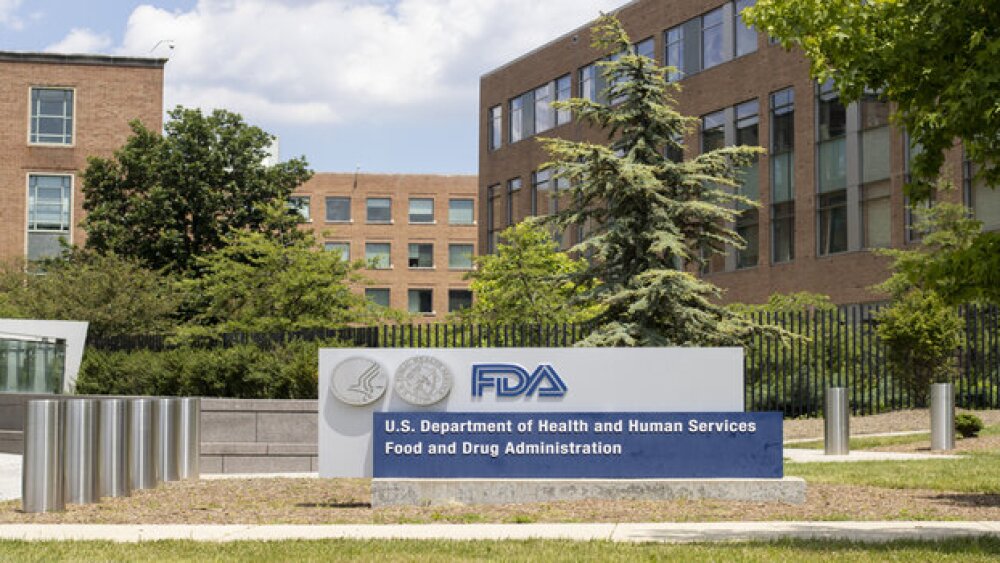The regulator has allowed for emergency use of Invivyd’s monoclonal antibody Pemgarda as a COVID-19 pre-exposure prophylaxis for moderately or severely immunocompromised patients.
Pictured: FDA sign at its office in Maryland/iStock, hapabapa
The FDA on Friday granted an Emergency Use Authorization to Invivyd’s monoclonal antibody Pemgarda (pemivibart) for the prevention of COVID-19 in moderately-to-severely immunocompromised individuals 12 years of age and older.
Pemgarda’s Emergency Use Authorization (EUA) does not cover its use to treat COVID-19 or as post-exposure prophylaxis for people who come in contact with someone positive for the SARS-CoV-2 virus. The pre-exposure prophylaxis (PrEP) antibody can only be used in individuals who are unlikely to mount a strong enough immune response to vaccines due to underlying medical conditions or certain immunosuppressive therapies.
Pemgarda is also not a substitute for vaccination, according to Invivyd’s announcement. Patients who have been recently vaccinated should wait at least two weeks before receiving Pemgarda.
Invivyd CEO Dave Herring in a statement said that Pemgarda’s authorization is a “transformational moment” for many moderately to severely immunocompromised patients who remain “vulnerable to COVID-19 disease in the U.S.” The company expects to make Pemgarda available for order “imminently,” with an initial supply ready for final release.
Developed using Invivyd’s proprietary Invymab platform—which combines viral surveillance, predictive modeling and advanced antibody engineering—Pemgarda is a half-life extended monoclonal antibody that has broad neutralizing activity against major SARS-CoV-2 variants. Pemgarda targets the virus’ receptor-binding domain and prevents its attachment to the human ACE2 receptors.
Pemgarda’s EUA was backed by interim data from the ongoing Phase III CANOPY trial, which used an immune-bridging approach with data from the Phase II/III EVADE trial of adintrevimab, the parent antibody for Pemgarda. EVADE showed that pre-exposure prophylaxis with adintrevimab could elicit a neutralizing titer concentration 90 days after administration, which in turn led to a 70% clinical efficacy rate.
CANOPY used EVADE’s data as historical controls and tested Pemgarda against currently relevant SARS-CoV-2 variants. At day 28, CANOPY established that Pemgarda could elicit protective titers similar to those produced in EVADE.
Pemgarda was also found to be safe and well-tolerated in CANOPY. Only four of 623 immunocompromised patients dosed with Pemgarda developed anaphylaxis, all of whom permanently discontinued prophylaxis. Two of these anaphylaxis cases were qualified as life-threatening, and in three patients anaphylaxis was completely resolved.
Systemic infusion-related reactions were also relatively uncommon, occurring in 9% of all dosed patients. Most were mild or moderate in severity.
Pemgarda’s label carries a black box warning reflecting these safety data, alerting prescribers and patients about the risk of anaphylaxis. Pemgarda should only be given in settings where healthcare providers have immediate access to treatments for anaphylaxis, according to the label.
Tristan Manalac is an independent science writer based in Metro Manila, Philippines. Reach out to him on LinkedIn or email him at tristan@tristanmanalac.com or tristan.manalac@biospace.com.






